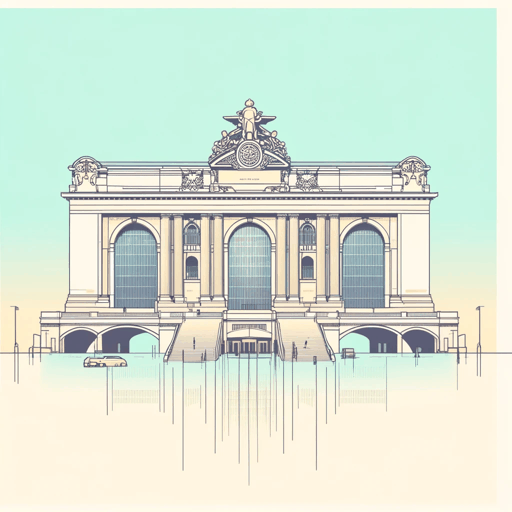30 pages • 1 hour read
John CheeverReunion
Fiction | Short Story | Middle Grade | Published in 1962A modern alternative to SparkNotes and CliffsNotes, SuperSummary offers high-quality Study Guides with detailed chapter summaries and analysis of major themes, characters, and more.
Summary and Study Guide
Summary: “Reunion”
“Reunion,” by American author John Cheever, is a short story that details the coming-of-age of the narrator and protagonist, Charlie. The story, first published in 1962 in The New Yorker, utilizes realism and symbolism to develop the themes of Expectation Versus Reality, Taking the High Ground, and The Inability to Communicate. The story details Charlie’s brief lunchtime meeting with his father in New York City and his internal conflict regarding his perceptions of his dad.
Cheever is best known for his short stories, having published over 200 of them in various publications, including The New Yorker, The New Republic, Collier’s, The Atlantic, and more. Additionally, he published several novels, including National Book Award winner The Wapshot Chronicle (1957). His writing largely explores the significance of seemingly mundane life events, which earned him the moniker of “the Chekhov of the suburbs.” In detailing the quotidian, Cheever is sometimes considered a moralist, as his writing often presents a judgment of his characters through a traditional moralist lens. Although some of his most famous stories—such as “The Enormous Radio” and “The Swimmer”—are infused with magical realism, “Reunion” is a markedly realistic portrayal of a meeting between father and son and was later reprinted in his Pulitzer Prize–winning collection The Stories of John Cheever. The collection also garnered the National Book Critics Circle Award.
This guide refers to the version of the story that is available in The Stories of John Cheever published by Knopf in 1978.
Content Warning: The source material contains potential implications of alcohol abuse.
“Reunion” is a 1,200-word short story written from the first-person perspective of Charlie, the protagonist, who is looking back on the story’s events. In the story, Charlie is a young man traveling through New York from his grandmother’s house in the Adirondack mountains to his mother’s rented cottage in Cape Cod. During his short layover between trains at Grand Central Station, Charlie is meeting his estranged father for lunch. The narrative voice is retrospective, with an older Charlie looking back on the event. As the story opens, Charlie notes that this is the last time he saw his father and that the noontime lunch meeting was arranged by his father’s secretary.
As Charlie spots his father approaching him in the crowd, he recalls that although he has not seen the man in three years since his mother divorced him, he still feels a strong connection to him. With a mixture of joy and foreboding, Charlie sees his father as his future self, noting the man’s large frame and good looks. After slapping his son on the back and shaking his hand, Charlie’s father states that instead of going to his club to eat, because getting there will take too long, they will go somewhere near the train station. In this moment, Charlie takes in the sight and smell of his father with pride, hoping that people will see them together and wishing that someone would photograph them to record this moment in time.
When Charlie and his father arrive at a restaurant on a side street, they sit at a table, the place empty because of the early time. Charlie’s father claps his hands and shouts rudely to an elderly waiter, demanding that they are served immediately. He orders two Beefeater Gibsons, a cocktail mixed with gin and dry vermouth. The waiter takes umbrage at being clapped at and says so to Charlie’s father, who responds that he should have brought a whistle so the old waiter could hear him better. When he repeats the order in a condescending manner, the waiter quietly and politely tells them to leave. Charlie’s father loudly declares this to be a brilliant suggestion and leaves with his son in tow.
They venture into a second restaurant and order the same drinks with less fanfare. Charlie and his father discuss baseball, and then the older man strikes his empty glass, shouting to the waiter for more. When questioned about Charlie’s age, his father responds rudely; as a result, the waiter refuses to serve Charlie any more alcohol. In a fit, his father proclaims that there are many other restaurants, pays the bill, and storms out.
In a third restaurant, the waiters wear pink jackets that look like hunting coats, and the walls are decorated with horse tack. As soon as they sit, Charlie’s father begins shouting again, this time calling the waiter “Master of the hounds” (519). When he orders the same drinks, he mistakenly asks for Bibson Geefeaters, suggesting he is intoxicated. The waiter catches this error and smiles, causing Charlie’s father to respond in a rage that times are changing in England. The waiter duly notes that they are not in England. Again, Charlie’s father storms out, calling the waiter an “impudent domestic.”
They enter a fourth establishment, which is Italian. Charlie’s father begins speaking in Italian, and when the waiter reveals that he does not speak that language, the father mocks him and continues. The manager, or captain, approaches to reveal that this table and all others in the restaurant are reserved, effectively kicking them out.
When they leave, Charlie indicates he must get on his train. His father apologizes and offers to get him a newspaper and walk him back to Grand Central Station. As they stop at the newsstand, the older man barrages the clerk with a string of insults. With growing embarrassment, Charlie insists he must leave and says goodbye, calling his father “Daddy.” He gets on his train and repeats that this is the last time he saw his father.
Related Titles
By John Cheever





